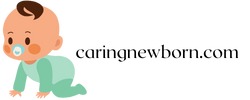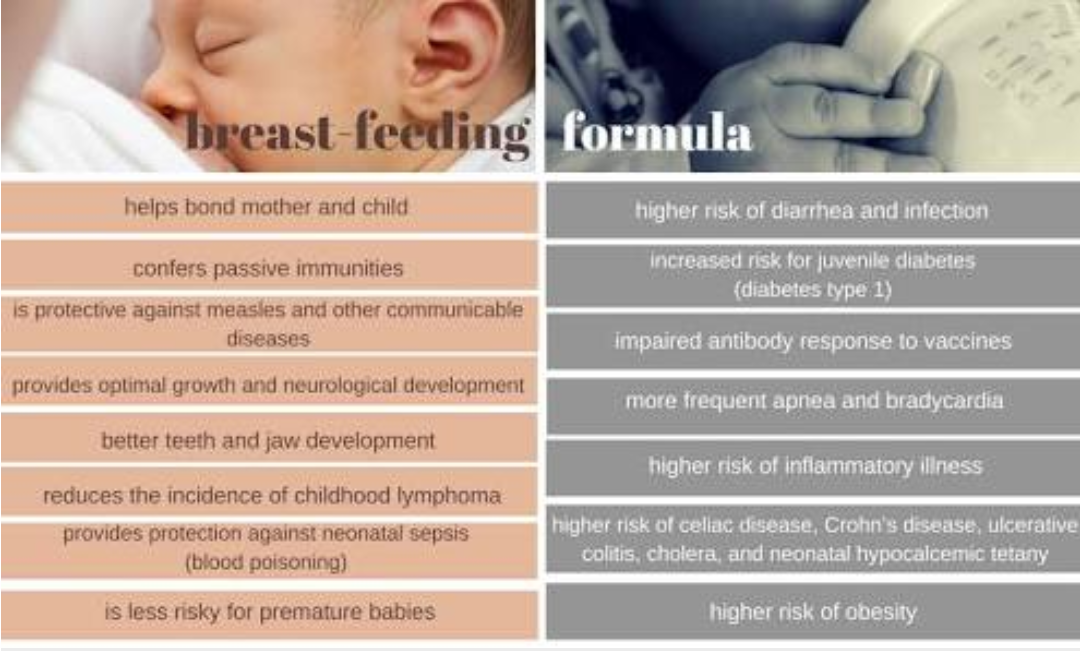Choosing between breastfeeding and bottle feeding is one of the first major decisions new parents face. It can be overwhelming with so much information available. Each option has its own benefits and challenges. This article will provide a clear look at breastfeeding and bottle feeding to help you make an informed choice for your family.
Benefits of Breastfeeding
Breastfeeding offers numerous advantages for both mother and baby. One of the most significant benefits is the nutritional value of breast milk. Breast milk contains the perfect mix of vitamins, proteins, and fats that babies need for healthy growth. It’s also easier for babies to digest compared to formula.
Would you like to see this content of ours How to Swaddle a Newborn Properly
Another key benefit is that breast milk contains antibodies. These help protect babies from infections and illnesses, especially in their early months. Studies show that breastfed babies have lower rates of respiratory infections, ear infections, and gastrointestinal diseases.
Emotional Bonding
Breastfeeding can also strengthen the emotional bond between mother and child. The act of nursing promotes skin-to-skin contact, which is important for bonding. This closeness helps create a strong emotional connection, benefiting both parties.
Cost-Effective
Breastfeeding is generally more cost-effective than formula feeding. The cost of formula can add up quickly over time. With breastfeeding, you avoid these costs altogether. Additionally, many mothers find that they don’t need to buy any special equipment besides a breast pump if they choose to express milk.
Benefits of Bottle Feeding
While breastfeeding has its perks, bottle feeding also offers many advantages. One major benefit is convenience. Anyone can feed the baby with a bottle, allowing parents to share feeding duties more easily. This can be especially helpful at night or when the mother needs to step away.
Bottle feeding allows for more flexibility in feeding schedules. Parents can measure the exact amount of formula or expressed breast milk given to the baby, making it easier to track daily intake. Some parents appreciate this level of control over their baby’s nutrition.
Dietary Freedom for Mothers
Bottle feeding allows mothers to maintain their diet without worrying about how it affects their breast milk. Mothers who are lactose intolerant or have specific dietary restrictions may find it easier to use formula instead of breastfeeding.
Sharing Responsibilities
Using bottles means partners can take on feeding duties as well. This can help fathers feel more involved in caring for their newborns. It allows parents to bond with the baby in different ways beyond just nursing.
Nutritional Aspects: Breast Milk vs Formula
The nutritional content of breast milk is often touted as superior to formula. However, modern infant formulas are designed to closely mimic the nutritional profile of breast milk. They contain essential nutrients like iron, calcium, and vitamins necessary for a baby’s development.
Breast milk changes according to the baby’s needs as they grow. For example, colostrum, produced in the first few days after birth, is rich in antibodies and nutrients that are crucial for newborns. On the other hand, formula provides consistent nutrition but lacks some of the dynamic benefits found in breast milk.
Allergies and Sensitivities
Some babies may develop allergies or sensitivities to certain ingredients in formulas. For instance, soy or cow’s milk-based formulas may not be suitable for all infants. Breastfeeding can help reduce the risk of developing allergies since it contains proteins that are easier on a baby’s system.
Common Challenges with Breastfeeding
While breastfeeding has many rewards, it also comes with challenges. Many new mothers face difficulties such as latching issues or pain during nursing sessions. These problems can make breastfeeding frustrating and lead some mothers to switch to bottle feeding.
Additionally, not all women produce enough milk to meet their baby’s needs. Stress, hormonal changes, or medical conditions can affect milk supply. If a mother struggles with these issues, she might feel pressured to turn to formula as an alternative.
Time Commitment
Breastfeeding requires a significant time commitment from mothers. Newborns typically nurse every 1-3 hours, which can be exhausting for new parents. This round-the-clock schedule may not fit well with a family’s lifestyle or work commitments.
Common Challenges with Bottle Feeding
Bottle feeding presents its own set of challenges as well. Preparing bottles can be time-consuming and requires careful attention to hygiene. Parents must ensure bottles are cleaned properly to avoid introducing bacteria into their baby’s diet.
Another concern is that some babies may develop preferences for bottle feeding over breastfeeding if introduced too early or too frequently. This can make transitioning back to breastfeeding difficult for some mothers who wish to do both.
The Cost Factor
The financial aspect cannot be ignored when discussing bottle feeding versus breastfeeding. Formula can be expensive over time, especially if you choose premium brands or specialized formulas due to allergies or sensitivities.
Cultural Perspectives on Feeding Choices
Cultural views heavily influence decisions about breastfeeding versus bottle feeding. In some cultures, breastfeeding is strongly encouraged and viewed as the best practice for nurturing infants. In contrast, other cultures may lean towards bottle feeding as a sign of affluence or modernity.
Public perception also plays a role in how mothers feel about their choices. Mothers who choose to breastfeed may face criticism in public places while those who opt for bottles might feel judged as well.
The Role of Support Systems
A strong support system can greatly impact a mother’s decision regarding how she feeds her baby. Support from family members, healthcare providers, and peer groups plays an important role in helping mothers feel confident in their choices—be it breastfeeding or bottle feeding.
Making the Right Choice For Your Family
The decision between breastfeeding and bottle feeding should be based on what works best for you and your baby. Each method has its own pros and cons, so it’s important to consider your lifestyle, health conditions, and personal preferences when making this choice.
If you’re leaning toward breastfeeding but face challenges, don’t hesitate to seek help from lactation consultants or parenting groups. Conversely, if you find that bottle feeding aligns better with your life situation, that’s perfectly okay too!
Conclusion: Finding What Works Best
No single approach fits all when it comes to infant feeding methods like breastfeeding and bottle feeding. Both options offer unique advantages that cater to different needs and circumstances of families.
Ultimately, what’s best is what works best for you and your child—be it through breastfeeding or using formula via bottles.
Be sure not only to consider nutritional aspects but also emotional connections and practical elements that affect your family’s lifestyle.
Frequently Asked Questions
Is breast milk really better than formula?
Breast milk provides natural antibodies and adjusts its composition based on your baby’s needs but modern formulas are designed to meet nutritional requirements as well.
Can I combine breastfeeding and bottle feeding?
Yes! Many parents successfully combine both methods known as “mixed feeding.” However, it’s essential to introduce bottles at the right time if you’re primarily breastfeeding.
What should I do if I can’t produce enough milk?
If you’re struggling with milk supply, consult a healthcare professional or lactation consultant who can provide guidance on increasing production or transitioning safely to formula.
Are there any long-term effects associated with either method?
The long-term effects vary by individual but generally include factors like nutrition during infancy impacting overall health later on; however both methods are valid depending on circumstances.
If I start with one method, can I switch later?
You can switch between breastfeeding and bottle feeding at any time although keep in mind that it might take time for your baby to adjust depending on their age and preferences.
This article provides a comprehensive overview of both breastfeeding and bottle feeding while addressing common concerns and practical advice for new parents looking for guidance on infant nourishment options.

